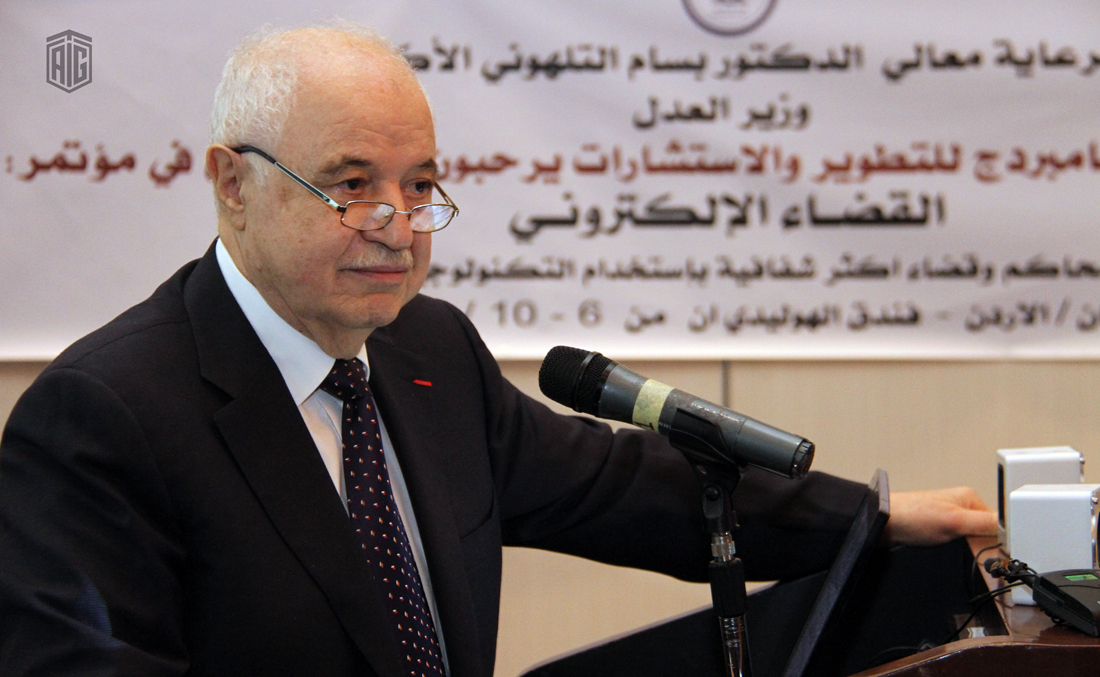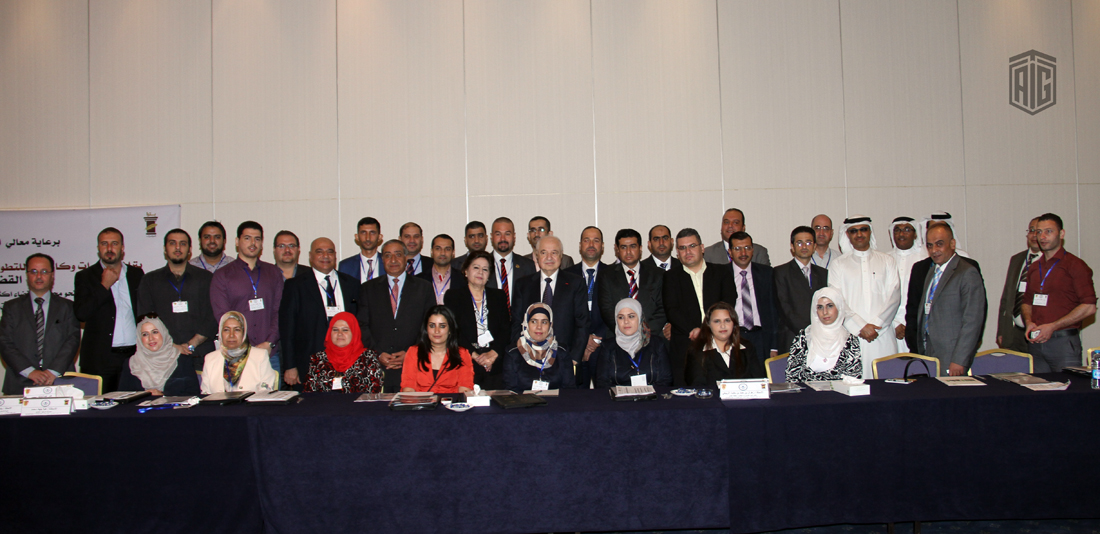وصايا الدكتور طلال أبوغزاله العشرين للشباب
AMMAN ---- October 13, 2015 –---- The Conference on "Electronic Judiciary: Towards More Transparent Courts and Judiciary Utilizing Modern Technology” was organized by Petra Company under the patronage of HE Minister of Justice Dr. Bassam Talhouni.
The Conference aimed at introducing state-of-the-art scientific developments in the field of information technology and benefitting from such technologies in the field of e-judiciary and e-government so as to move towards smart governments at a later stage.
HE Dr. Talal Abu-Ghazaleh, chairman of Talal Abu-Ghazaleh Organization (TAG-Org), the keynote speaker at the Conference stressed that Jordan needs to go a long way to reach the electronic judiciary stage and that the Kingdom was late in applying the e-government program in all tracks, not only within the judiciary sector, despite the constant directives of His Majesty the King to the government to apply e-government, but the successive governments have not given due importance to this issue.
He also pointed out that e-government is an indispensable pre-requisite for achieving e-judiciary because it is one of the means for ensuring integrity since the individual will be dealing with a program and not with persons, therefore an electronic judiciary is expected to facilitate transactions and access to data and reduce the accumulation of files, and will offer other positive aspects such as: the speed in finalizing work, saving time and effort and ensuring security of documents, in addition to the completion of work at any time and from any location.
Dr. Abu-Ghazaleh also said that the application of electronic judiciary needs the enactment of certain legislations and laws but this should not be taken as a justification or excuse for the delay of its implementation by starting with the adoption of e-signature and e-payment, pointing out that we need to make some changes within the currently used system and procedures including the creation of an electronic portal and the development of database for all cases handled and the need for archiving all applications electronically. In this context, he stressed that the reason of TAG-Org’s success in the protection of Intellectual Property (IP) is the presence of the largest database in the world on IP provisions.
He added that to shift to electronic government within the judicial sector (e-judiciary) we have several options: either to apply a comprehensive program for the Ministry of Justice and for whatever entities falling under its umbrella, or to adopt a phased-application process and hence an action plan is to be drawn up that defines needed stages, priorities and needs in terms of infrastructure, legislation and required training for lawyers and judges.
He also underlined the importance of recognizing that we are living in a world that is quickly transitioning towards digitalization everything and we are living in a world where science nowadays is discussing and embarking on a study to explore the psychology of a robot, and technologies indicate that by 2050 both man and robot will have the same mental abilities and technical capacities, pointing out that 99% of the citizens of many countries below 12 years of age now are digitalized.
Abu-Ghazaleh also indicated that one of the most important decisions of the last Arab Summit was to consider 2015 – 2024 a decade to eradicate illiteracy in its three aspects (writing and reading, information technology, and culture.)
He said that Talal Abu-Ghazaleh and Co. Consulting (TAG-Consult) will prepare a report to be submitted to the Ministry of Justice, explaining from the organization’s point of view the prospective assumptions, and proposals for the transition to electronic judiciary, as part of our responsibility and duty as citizens.
The Conference was attended by several international senior experts in this area, including Judge of International Criminal Justice and Senator Taghreed Hikmat and a number of academics, deans of law schools at universities and a group of experts from Arab countries including Saudi Arabia, Bahrain, Iraq, Oman, Sudan and Palestine in addition to Jordan.
For his part, Head of the Conference Dr. Tahseen Hantouleh explained that the conferences organized by the company always correspond to changes that beset the region and economy, stressing the importance of e-government and the necessity of opening up the way for experts and relevant stakeholders to come up with recommendations to be submitted to decision-makers so as to apply what is the best and possible of them on the ground.
Moreover, Director General of Petra for Conferences Mohammed Habashneh stressed that the conference idea stems out of the importance of keeping up with developments in contemporary and modern management and keeping abreast of eminent changes and rapid developments in technology, which daily produces new innovations in the field of technology and economy.
The Conference, which lasted for five days, tackled several topics, including the concept of electronic courts (e-courts) and ending controversy and arguments of its legality and usability for practical application, the role of the legislative authority in enacting necessary laws to reinforce the concept of e-judiciary, the indispensable role of e-courts in the development of the judiciary in the Arab world and the need for exchanging successful Arab and international experiences in this domain as well as the optimal use of technology and modern means of communication plus the need to learn how to deal with legal electronic contracts (e-contracts) and intellectual property in light of the information revolution and how to provide necessary data and criminal protection for electronic information in courts.




.jpg)